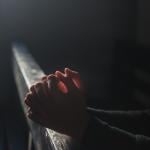Denver, Colo., Oct 6, 2016 / 12:01 pm (CNA/EWTN News).- Republican presidential candidate Donald Trump wrote a letter to Catholic leaders during a two-day conference in Denver this week, identifying himself as pro-life and vowing to support core values such as religious liberty and school choice. “I have a message for Catholics: I will be there for you. I will stand with you. I will fight for you,” he wrote Oct. 5. “I am, and will remain, pro-life. I will defend your religious liberties and the right to fully and freely practice your religion, as individuals, business owners and academic institutions.” Trump's letter was addressed to the 18th Annual Catholic Leadership Conference, being held Oct 4-6 in Denver. He stated that Catholics are “a rich part of our nation's history” and that “the United States was, and is, strengthened through Catholic men, women, priests and religious Sisters.” The GOP candidate has met a mixed reaction among Catholics. His commitment to the pro-life cause has been questioned by some advocates, due to his strong pro-choice statements in 1999 and 2000, as well as his comments during the campaign that his sister Maryanne Trump Barry would be an ideal Supreme Court nominee, despite her striking down New Jersey’s ban on partial-birth abortions as a judge. He has also pushed for an expansion of the death penalty. While he later said that he is committed to appointing pro-life judges, his earlier statements have left some Catholics wary of his sincerity in being pro-life. In his letter, Trump pointed to Democratic candidate Hillary Clinton’s extreme pro-abortion record and support for the HHS mandate, which requires many religious non-profits to fund and facilitate abortion and related products against their religious convictions. “Hillary Clinton supports forcing The Little Sisters of the Poor who have taken care of the elderly poor since 1839, pay for contraceptives in their health care plan (even though they have never wanted them, never used them and never will), and having the government fine them heavily if they continue to refuse to abide by this onerous mandate,” Trump wrote. He added that Clinton “has been hostile to the core issues and policies of greatest concern to Catholics: life, religious liberty, Supreme Court nominations, affordable and quality healthcare, educational choice and home schooling.” The GOP candidate also noted that Tim Kaine, the Democratic vice presidential candidate, has a 100 percent voting record from the National Abortion Rights Action League and supports same-sex marriage, despite professing to be Catholic. “On issues and policies of greatest concern to Catholics, the differences between myself and Hillary Clinton are stark. I will stand with Catholics and fight for you,” he said. “Hillary Clinton has been openly hostile to these core Catholic issues for a long time, and is only going to be worse with Tim Kaine now following her lead.” Trump’s commitment to religious freedom has been questioned, due to his proposal for an indefinite ban on allowing Muslims into the U.S. and a potential system of monitoring those already in the country. And while the GOP candidate says he opposes same-sex marriage, he has attracted criticism from defense-of-marriage groups who note that he has bragged in the past about having affairs with other married women. Additionally, Trump’s casino was the first in Atlantic City to have an in-house strip club. Trump concluded his letter by saying that he “offers a much brighter future for our beloved country” than does Clinton. The presidential candidate's letter comes amid a tumultuous election season. Last month, Archbishop Charles Chaput of Philadelphia said he believes “that each candidate is very bad news for our country, though in different ways.” “One candidate, in the view of a lot of people, is a belligerent demagogue with an impulse control problem. And the other, also in the view of a lot of people, is a criminal liar, uniquely rich in stale ideas and bad priorities,” the archbishop added. And in March, more than 30 Catholic intellectual leaders signed an open letter authored by George Weigel and Robert George denouncing Trump as a man “manifestly unfit to be president of the United States” who has “driven our politics down to new levels of vulgarity,” pleading with Catholics not to vote for Trump in the primaries, which were then in full-swing. Read Donald Trump’s full letter to the Catholic Leadership Conference here. Read more














